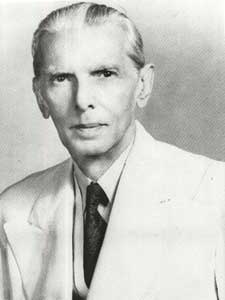
Fourteen Points of Jinnah
The Fourteen Points of Jinnah were proposed by Muhammad Ali Jinnah in response to the Nehru report. It basically consisted of four Delhi proposals, the three Calcutta amendments, and demands for the continuation of separate electorates and reservation of seats for Muslims in government services and self-governing bodies. In 1928, an All Parties Conference was convened in reaction to the Simon Commission appointed to discuss parliamentary reform in British India. A committee was set up under Motilal Nehru. That committee prepared a report which is known as "Nehru Report". This report demanded "Dominion Status" for India. Separate electorates were refused and the reservation of seats for the Muslims of Bengal and Punjab was rejected. In this report, not a single demand of the Muslim League was upheld. In reaction to the Nehru Report, Mr. Jinnah was authorized by the League to draft in concise terms the basis of any future constitution that was to be devised for India. Jinnah's aim was to safeguard the interests of Muslims. He, therefore, gave his 14 points. These points covered all of the interests of the Muslims at a heated time and in these 14 points Jinnah stated that it was the "parting of ways" and that he did not want and would not have anything to do with the Indian National Congress in the future. The League leaders motivated Jinnah to revive the Muslim League and give it direction. As a result, these points became the demands of the League and greatly influenced the Muslims' thinking for the next two decades until the establishment of Pakistan in 1947.
Background[edit]
The report was given in a meeting of the council of the All India Muslim League on 9 March 1929. The Nehru Report was criticized by Muslim leaders Aga Khan and Muhammad Shafi. They considered it as a death warrant because it recommended joint electoral rolls for Hindus and Muslims.[1] Muhammad Ali Jinnah left for England in May 1928 and returned after six months. In March 1929, the Muslim League session was held in Delhi under the presidency of Jinnah. In his address to his delegates, he consolidated Muslim viewpoints under fourteen items and these fourteen points became Jinnah's 14 points and the manifesto of the All India Muslim League.[1][2]